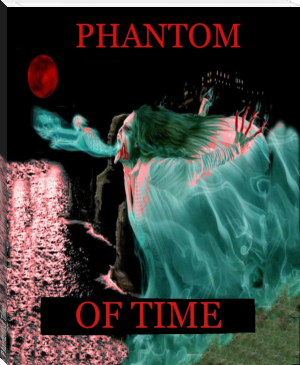The Truth about Angels - Ellen G. White (i like reading .TXT) 📗

- Author: Ellen G. White
Book online «The Truth about Angels - Ellen G. White (i like reading .TXT) 📗». Author Ellen G. White
Isaac ... plainly stated that Esau, as the eldest, was the one entitled to the birthright. But Esau had no love for devotion, no inclination to a religious life.... Rebekah remembered the words of the angel, and ... she was convinced that the heritage of divine promise was intended for Jacob. She repeated to Isaac the angel’s words; but the father’s affections were centered upon the elder son, and he was unshaken in his purpose.—Patriarchs and Prophets, 177, 178. {TA 82.2}
Jacob had learned from his mother of the divine intimation that the birthright should fall to him, and he was filled with an unspeakable desire for the privileges which it would confer. It was not the possession of his father’s wealth that he craved; the spiritual birthright was the object of his longing.... {TA 82.3}
When Esau, coming home one day faint and weary from the chase, asked for the food that Jacob was preparing, the latter ... offered to satisfy his brother’s hunger at the price of the birthright. “Behold, I am at the point to die,” cried the reckless, self-indulgent hunter, “and what profit shall this birthright do to me?” And for a dish of red pottage he parted with his birthright.... {TA 83.1}
Jacob and Rebekah succeeded in their purpose, but they gained only trouble and sorrow by their deception. God had declared that Jacob should receive the birthright, and His word would have been fulfilled in His own time, had they waited in faith for Him to work for them.... {TA 83.2}
Threatened with death by the wrath of Esau, Jacob went out from his father’s home a fugitive.... The evening of the second day found him far away from his father’s tents. He felt that he was an outcast, and he knew that all this trouble had been brought upon him by his own wrong course. The darkness of despair pressed upon his soul, and he hardly dared to pray. But he was so utterly lonely that he felt the need of protection from God as he had never felt it before. With weeping and deep humiliation he confessed his sin, and entreated for some evidence that he was not utterly forsaken.... {TA 83.3}
God did not forsake Jacob.... The Lord compassionately revealed just what Jacob needed—a Saviour.... Wearied with his journey, the wanderer lay down upon the ground, with a stone for his pillow. As he slept, he beheld a ladder, bright and shining, whose base rested upon the earth, while the top reached to heaven. Upon this ladder, angels were ascending and descending; above it was the Lord of glory, and from the heavens His voice was heard: “I am the Lord God of Abraham thy father, and the God of Isaac.” .... {TA 83.4}
In this vision the plan of redemption was presented to Jacob.... The ladder represents Jesus, the appointed medium of communication. Had He not with His own merits bridged the gulf that sin had made, the ministering angels could have held no communion with fallen man.... {TA 84.1}
With a new and abiding faith in the divine promises, and assured of the presence and guardianship of heavenly angels, Jacob pursued his journey to “the land of the children of the East.”—Patriarchs and Prophets, 178-180, 183, 184, 188. {TA 84.2}
Though Jacob had left Padan-aram in obedience to the divine direction, it was not without many misgivings that he retraced the road which he had trodden as a fugitive twenty years before. His sin in the deception of his father was ever before him.... As he drew nearer his journey’s end, the thought of Esau brought many a troubled foreboding.... Again the Lord granted Jacob a token of the divine care.—Patriarchs and Prophets, 195. {TA 84.3}
As Jacob went on his way, the angels of God met him. And when he saw them, he said, “This is God’s host.” He saw the angels of God in a dream, encamping around about him.—Spiritual Gifts 3:127. {TA 84.4}
Directly before ... [Jacob], as if leading the way, he beheld two armies of heavenly angels marching as a guide and guard; and when he saw them he broke forth in language of praise, and exclaimed, “This is God’s host.” And he called the name of the place Mahanaim, which signifies two hosts, or camps.—The Signs of the Times, November 20, 1879. {TA 84.5}
Yet Jacob felt that he had something to do to secure his own safety. He therefore dispatched messengers with a conciliatory greeting to his brother.... But the servants returned with the tidings that Esau was approaching with four hundred men, and no response was sent to the friendly message.... “Jacob was greatly afraid and distressed.” ... He accordingly divided them [his family and servants] into two bands, so that if one should be attacked, the other might have an opportunity to escape.... {TA 85.1}
They had now reached the river Jabbok, and as night came on, Jacob sent his family across the ford of the river, while he alone remained behind. He had decided to spend the night in prayer, and he desired to be alone with God.... {TA 85.2}
Suddenly a strong hand was laid upon him. He thought that an enemy was seeking his life, and he endeavored to wrest himself from the grasp of his assailant. In the darkness the two struggled for the mastery. Not a word was spoken, but Jacob put forth all his strength, and did not relax his efforts for a moment. While he was thus battling for his life, the sense of his guilt pressed upon his soul; his sins rose up before him, to shut him out from God. But in his terrible extremity he remembered God’s promises, and his whole heart went out in entreaty for His mercy. The struggle continued until near the break of day, when the stranger placed his finger upon Jacob’s thigh, and he was crippled instantly. The patriarch now discerned the character of his antagonist. He knew that he had been in conflict with a heavenly messenger, and this was why his almost superhuman effort had not gained the victory.—Patriarchs and Prophets, 196, 197. {TA 85.3}
The One who wrestled with Jacob is called a man; Hosea calls Him the angel; while Jacob said, “I have seen God face to face.” He is also said to have had power with God. It was the Majesty of heaven, the Angel of the covenant, that came, in the form and appearance of a man, to Jacob.—The Signs of the Times, November 20, 1879. {TA 86.1}
It was Christ, “the Angel of the covenant,” who had revealed Himself to Jacob. The patriarch was now disabled, and suffering the keenest pain, but he would not loosen his hold.... He must have the assurance that his sin was pardoned.... The Angel tried to release Himself; He urged, “Let me go, for the day breaketh”: but Jacob answered, “I will not let thee go, except thou bless me.” Had this been a boastful, presumptuous confidence, Jacob would have been instantly destroyed; but his was the assurance of one who confesses his own unworthiness, yet trusts the faithfulness of a covenant-keeping God. Jacob “had power over the Angel, and prevailed.” ... {TA 86.2}
While Jacob was wrestling with the Angel, another heavenly messenger was sent to Esau. In a dream, Esau beheld his brother for twenty years an exile from his father’s house; he witnessed his grief at finding his mother dead; and saw him encompassed by the hosts of God. This dream was related by Esau to his soldiers, with the charge not to harm Jacob, for the God of his father was with him.... {TA 86.3}
Jacob’s experience during that night of wrestling and anguish represents the trial through which the people of God must pass just before Christ’s second coming.—Patriarchs and Prophets, 197-201. {TA 87.1}
Chapter 8—Angels at the Time of the Exodus
Chapter 8—Angels at the Time of the Exodus
The Birth of Moses
As time rolled on, [Joseph] the great man to whom Egypt owed so much ... passed to the grave. And “there arose up a new king over Egypt, which knew not Joseph.” ... “And he said unto his people, Behold, the people of the children of Israel are more and mightier than we.” .... Orders were issued ... to destroy the Hebrew male children at their birth. Satan was the mover in this matter. He knew that a deliverer was to be raised up among the Israelites; and by leading the king to destroy their children he hoped to defeat the divine purpose.... {TA 88.1}
While this decree was in full force, a son was born to Amram and Jochebed.... The mother succeeded in concealing the child [Moses] for three months. Then, finding that she could no longer keep him safely, she prepared a little ark of rushes, making it watertight by means of slime and pitch; and laying the babe therein, she placed it among the flags at the river’s brink. She dared not remain to guard it, lest the child’s life and her own should be forfeited; but his sister, Miriam, lingered near, ... anxiously watching to see what would become of her little brother. And there were other watchers. The mother’s earnest prayers had committed her child to the care of God; and angels, unseen, hovered above his lowly resting place. Angels directed Pharaoh’s daughter thither. Her curiosity was excited by the little basket, and as she looked upon the beautiful child within, she read the story at a glance. The tears of the babe awakened her compassion, and ... she determined that he should be saved; she would adopt him as her own.—Patriarchs and Prophets, 241-243. {TA 88.2}
The elders of Israel were taught by angels that the time for their deliverance was near, and that Moses was the man whom God would employ to accomplish this work. Angels instructed Moses also that Jehovah had chosen him to break the bondage of his people. He, supposing that they were to obtain their freedom by force of arms, expected to lead the Hebrew host against the armies of Egypt.—Patriarchs and Prophets, 245. {TA 89.1}
Moses remained at court until he was forty years of age.... One day while thus abroad, seeing an Egyptian smiting an Israelite, he sprung forward, and slew the Egyptian ... and immediately buried the body in the sand.... [Moses] made his escape and fled toward Arabia.... After a time, Moses married one of the daughters of Jethro; and here, in the service of his father-in-law, as keeper of his flocks, he remained forty years.—Patriarchs and Prophets, 246, 247. {TA 89.2}
Moses in Midian
Could his [Moses’] eyes have been opened, he would have seen the messengers of God, pure, holy angels, bending lovingly over him, shedding their light around him.—The Signs of the Times, February 19, 1880. {TA 90.1}
While engaged in his round of duties he [Moses] saw a bush, branches, foliage, and trunk, all burning, yet not consumed. He drew near to view the wonderful sight, when a voice addressed him from out of the flame. It was the voice of God. It was He who, as the angel of the covenant, had revealed Himself to the fathers in ages past. The frame of Moses quivered, he was





Comments (0)